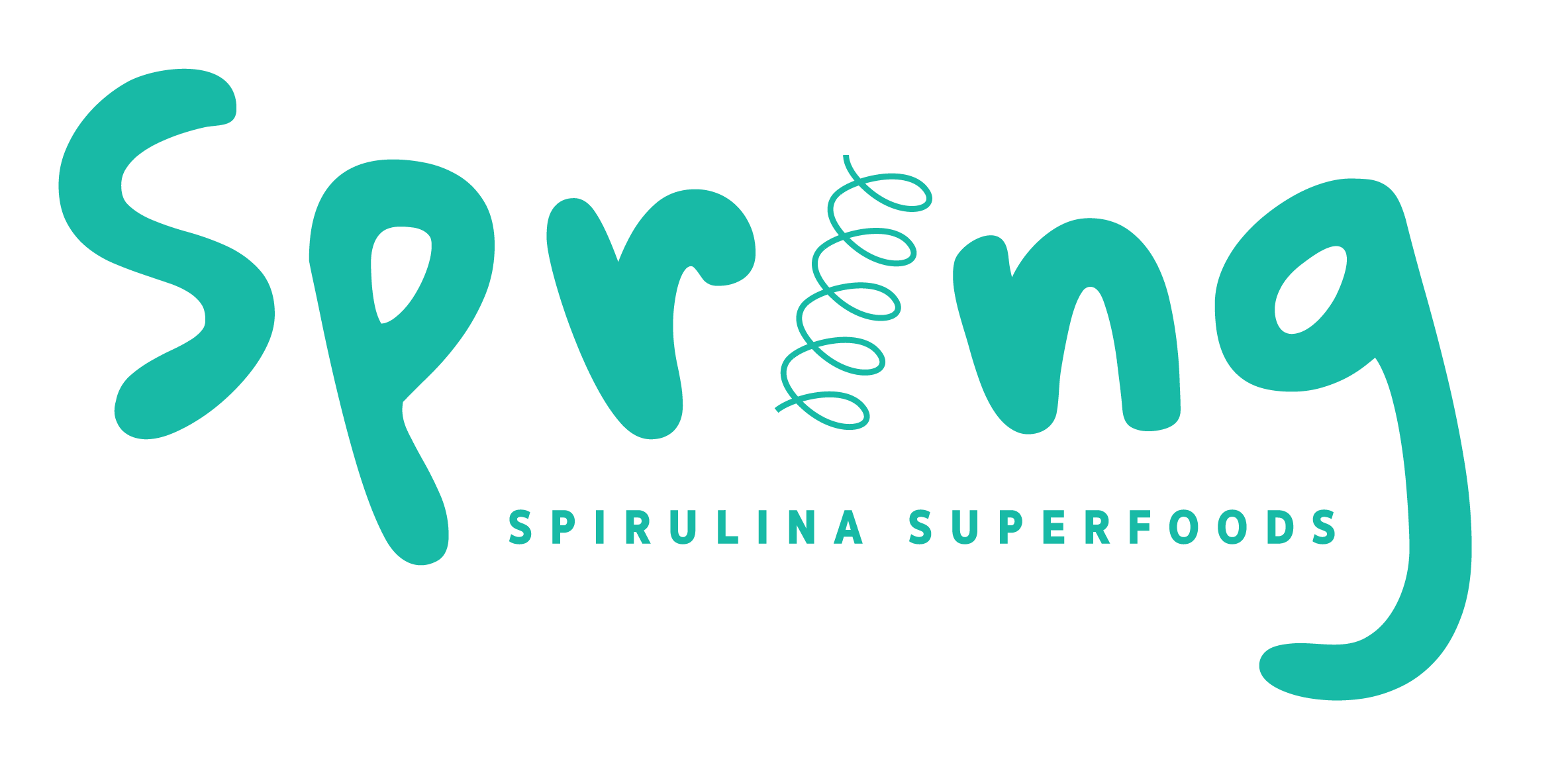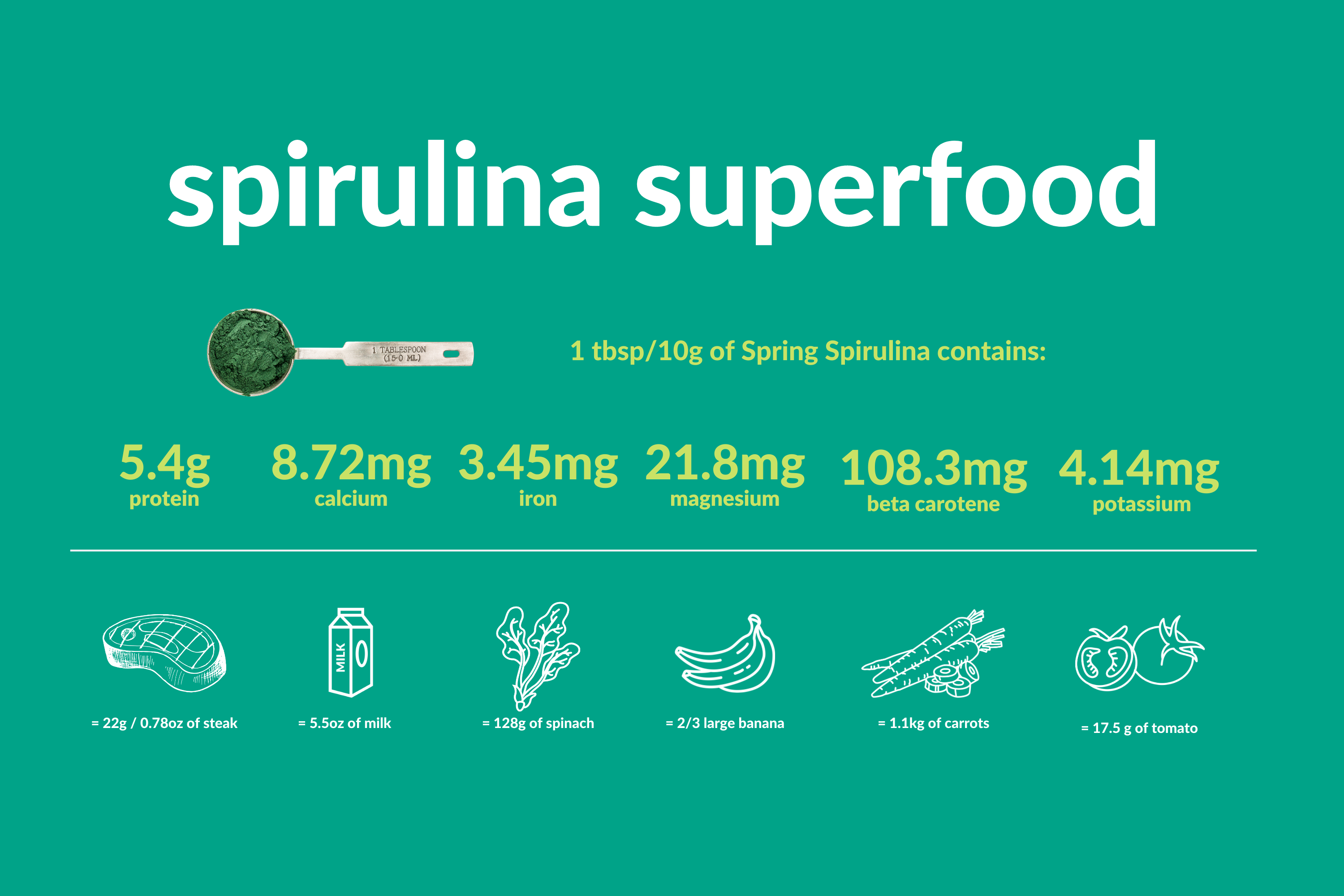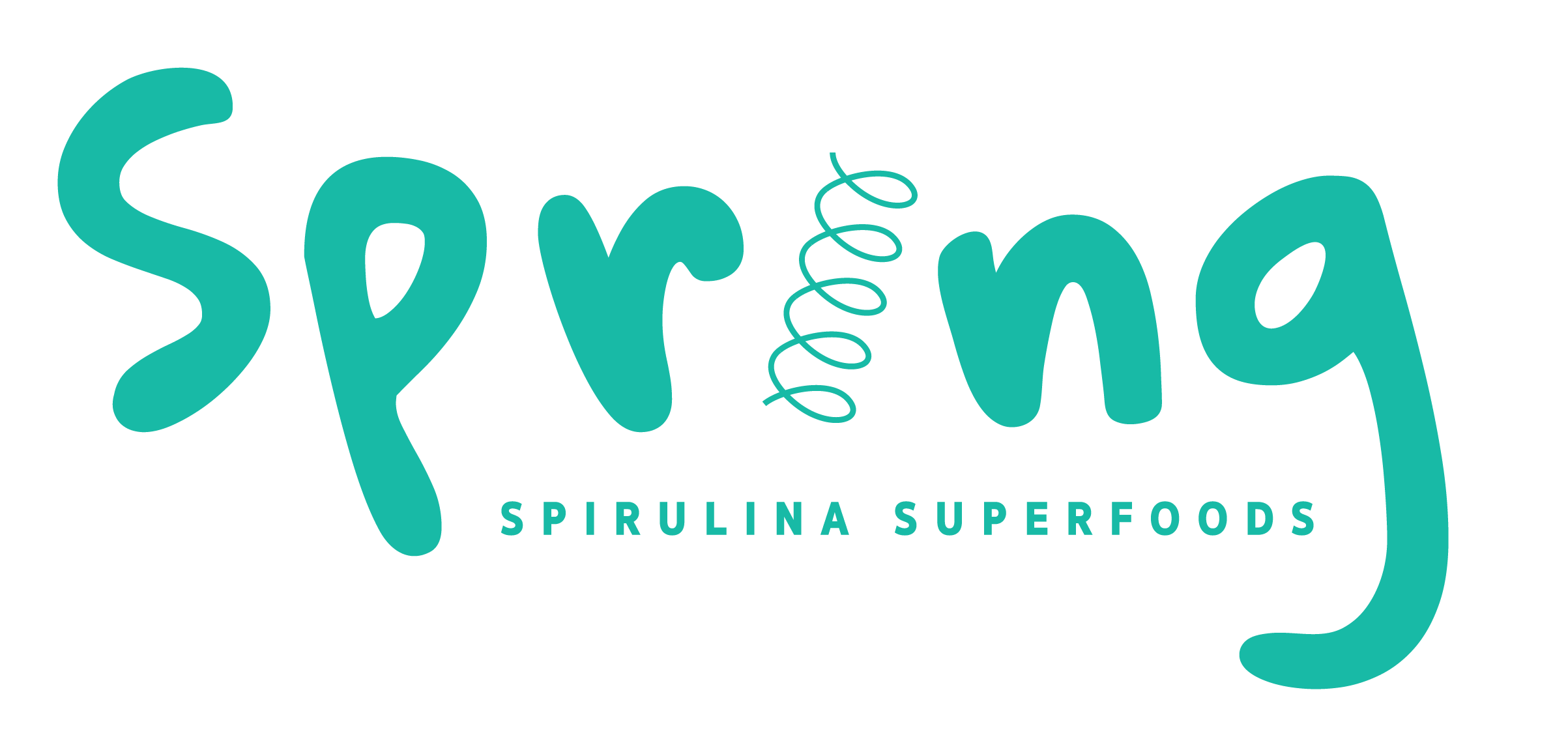Spirulina is a blue-green algae offering exceptionally high protein content and a remarkably complete composition of vitamins and minerals essential for healthy living. Unlike other potent sources of nutrients and protein Spirulina is low in calories and cholesterol. Below are a few of the highlights for why Spirulina is such an excellent source of your daily nutrition needs:
Dried Spirulina as a potent source of protein
Dried Spirulina is 59% – 65% percent protein which is especially impressive when compared with dried soybean at 40 percent, lentils at 26 percent and peanuts at 25 percent. Perhaps more surprising is that raw beef only contains 23 percent protein. With only 36 kcal calories per 10 grams of dried powder, Spirulina is an excellent source of protein without empty calories. Additionally, the protein is far more accessible by the human digestive system than most other plant and animal proteins. This means the body can absorb and utilize much more of the available protein with far less energy and stress on the digestive system.
(source: USDA, FAO p. 10)
Complete Source of Amino Acids and Omega 3
In addition to containing omega-3 fatty acid, and being highly concentrated with protein, Spirulina is dense with all 8 essential amino acids that the body does not naturally synthesize. Here is a list of the different amino acids and how your body utilizes them:
- Isoleucine – required for optimal growth
- Leucine – stimulates brain function
- Lysine – needed for producing antibodies, enzymes and hormones
- Methionine – antioxidant properties
- Phenylalanine – required for thyroid function
- Threonine – improves intestinal and digestive function
- Tryptophane – regulates serotonin
- Valine – stimulates mental and physical capacity
Protein without cholesterol
An undesirable by-product of many sources of animal protein is cholesterol. Doctors recommend healthy adults consume less than 300 mg or 200 mg if you have diabetes or suffer from heart disease. Consider this, 10 grams of dried spirulina (approximately a large spoonful) carries 5.75 gram protein and 1.3 mg of cholesterol, compared to an equivalent quantity of egg protein containing 300 mg of cholesterol.
(sources: FAO p6 and MAYO Clinic http://www.mayoclinic.com/health/reduce-cholesterol/CL00012)
High concentrations of essential minerals
Remember the expression that eating green is good, well you had no idea just how good it can be. Below is list of some of the essential minerals you receive in 10 gram of dried Spirulina compared with more traditional sources:
- Iron: 2.9 mg – more iron than beef (recommended daily iron consumption) – M 8mg F 18mg
- Potassium: 114 mg – more potassium than bananas (recommended potassium intake) 4700 mg
- Calcium: 10 mg – more calcium than whole milk (recommended calcium intake) 1100 mg
- Magnesium: 20 mg – more magnesium than walnuts (recommended magnesium) M 400 mg W 350 mg
- Zinc: 0.2 mg – more zinc than spinach (zinc) M 11 mg W 8 mg
Spirulina does not replace a healthy diet, but helps to balance out deficiencies and gives a great boost of energy. As an example, to achieve a recommended daily allowance of many minerals, an adult would need to consume a very large quantity of Spirulina.
- Iron: Men need 2.8 tbsp Women need 6.2 tbsp (Spirulina) ~ comparable to approximately 450 grams for men and 1000 grams for women of grass fed beef
- Potassium: 33 tbsp ~ comparable to 1300 grams of bananas
- Calcium: 110 tbsp ~ comparable to (1000 grams of whole milk)
- Magnesium: 18 tbsp ~ comparable to 250 grams of walnuts
- zinc M 55 tbsp 40 tbsp ~ comparable to 2000 grams for men and 1,500 grams for women of spinach
*note: an average tablespoon of dried Spirulina approximately 10 grams
(source: USDA)
Vitamins and more vitamins
Here is a short list of the alphabet of vitamins in Spirulina: A, B1, B2, B3, B5, B6, B7, B8, B9, C, D, E and K. It would take too long to list all the benefits from this list of vitamins so we decided to highlight just one:
- β-carotene (beta-carotene) is best known for its red-orange pigment found in carrots. And did you know that the National Cancer Institute of the United States of America has recommended consumption of 6 mg of beta-carotene daily to reduce the risk of cancer. In 4 grams, half a tablespoon of dried Spirulina, you will consume 6 mg, or your daily recommended amount of beta-carotene. (source FAO p. 7)


